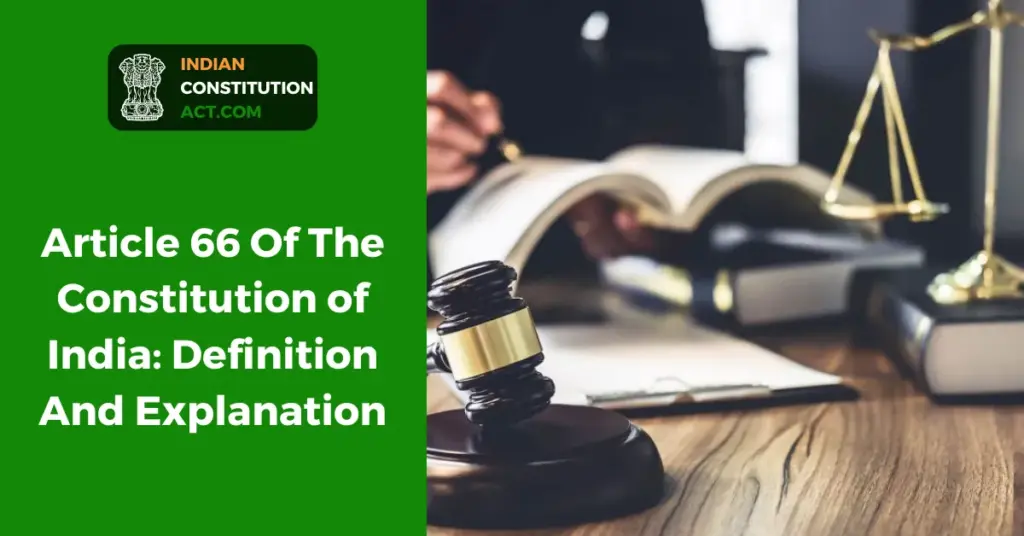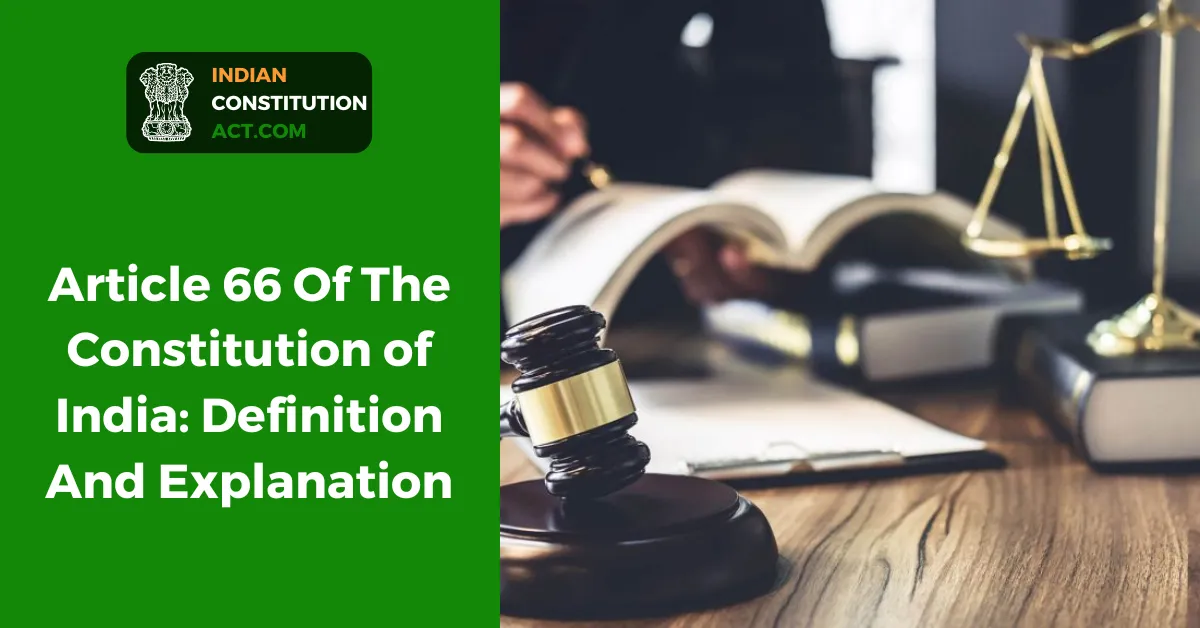Constitution of India Article 66 tells about the election of Vice-President. Who can vote in the election for Vice President and which members cannot vote? Most of the important things related to Vice-President elections are mentioned in Article 66 of the Constitution of India, let’s read out:
Table of Contents
What Is Article 66 of the Constitution of India?

Only the members of Rajya Sabha and Lok Sabha can vote in the Vice-President election and the members of the State Legislative Assembly are not eligible to vote in the Vice-President election. Every member is eligible to cast one vote and the election is conducted based on a secret ballot.
If a candidate is contesting for the post of Vice-President, he/she cannot be a member of any Sabha, i.e. he cannot be a member of Rajya Sabha and Lok Sabha at the time of contesting the election. And if the candidate becomes the Vice-President and he/she is a member of Rajya Sabha or Lok Sabha, then he/she has to resign from that post to take oath as Vice-President.
Article 66 also specifies who is eligible to contest the election for Vice-President.
- Most important is that the candidate should be a citizen of India;
- The age of the candidate should be 35 years or more only then he/she will be considered eligible for this election.
- Candidate for election as a member of the Council of States.
If a candidate is holding any post under the Government of India, any state government, or municipal party, then the candidate will have to leave that job only then he/she will be eligible for the election. Yes, the candidate can’t hold the post of Vice-President along with a previous job, mentioned above.
Also read: Article 61 Of The Indian Constitution: Impeachment Of President Of India
Indian Constitution Article 66 Definition
Clause 1: The Vice-President shall be elected by the members of an electoral college consisting of the members of both Houses of Parliament in accordance with the system of proportional representation by means of the single transferable vote and the voting at such election shall
be by secret ballot.
Clause 2: The Vice-President shall not be a member of either House of Parliament or of a House of the Legislature of any State, and if a member of either House of Parliament or of a House of the Legislature of any State be elected Vice-President, he shall be deemed to have vacated his seat in that House on the date on which he enters upon his office as Vice-President.
Clause 3: No person shall be eligible for election as Vice-President unless he—
a. is a citizen of India;
b. has completed the age of thirty-five years; and
c. is qualified for election as a member of the Council of States.
Clause 4: A person is not eligible for election as Vice-President if they hold any post of profit under the India-State government or any regional or other authority maintained by these governments. This is stated in Article 66 of the Constitution of India, hope you understood everything regarding this article.
